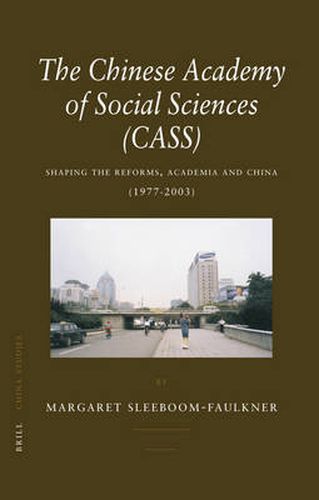Readings Newsletter
Become a Readings Member to make your shopping experience even easier.
Sign in or sign up for free!
You’re not far away from qualifying for FREE standard shipping within Australia
You’ve qualified for FREE standard shipping within Australia
The cart is loading…






This socio-political analysis of the Chinese Academy of Social Sciences (CASS) sheds new light on the link between China’s educational reforms and the ideological control exerted by the Party-state. It explores the dynamics of the ways in which the academic community has carved out and utilised the spaces between the academic and Party leadership and the free will of the individual. By differentiating between various forms of power, the author shows how knowledge produced at CASS is influenced not only as a direct result of top-down decisions-making but also unintentionally through organizational networks that interlock both leaders and led in the institutions they helped shape. Administrative tools and symbolic representation in official ceremony are shown to be indispensable for an adequate understanding of the generation of knowledge at CASS. With financial support of the International Institute for Asian Studies (www.iias.nl).
$9.00 standard shipping within Australia
FREE standard shipping within Australia for orders over $100.00
Express & International shipping calculated at checkout
This socio-political analysis of the Chinese Academy of Social Sciences (CASS) sheds new light on the link between China’s educational reforms and the ideological control exerted by the Party-state. It explores the dynamics of the ways in which the academic community has carved out and utilised the spaces between the academic and Party leadership and the free will of the individual. By differentiating between various forms of power, the author shows how knowledge produced at CASS is influenced not only as a direct result of top-down decisions-making but also unintentionally through organizational networks that interlock both leaders and led in the institutions they helped shape. Administrative tools and symbolic representation in official ceremony are shown to be indispensable for an adequate understanding of the generation of knowledge at CASS. With financial support of the International Institute for Asian Studies (www.iias.nl).